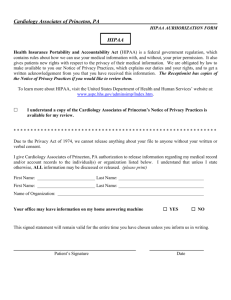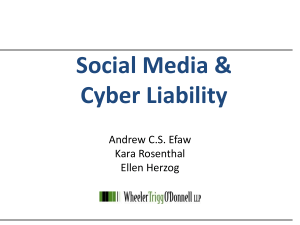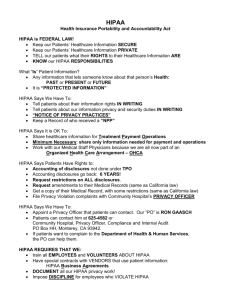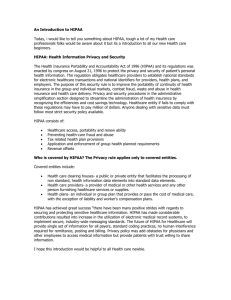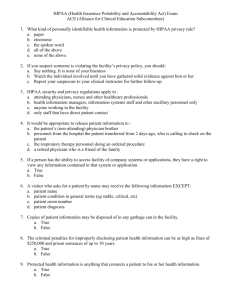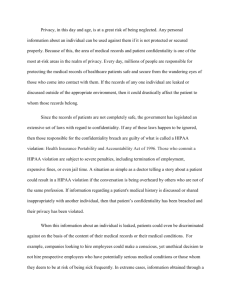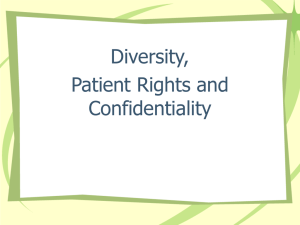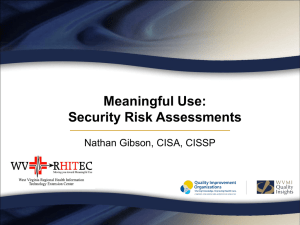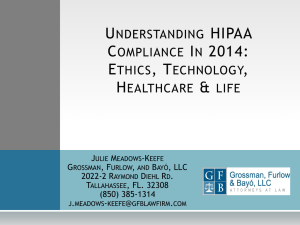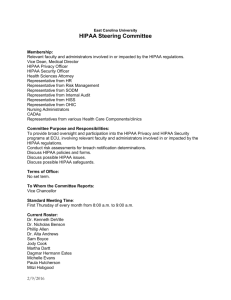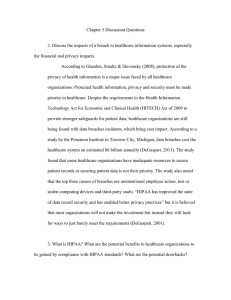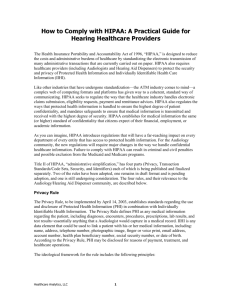HEALTH INSURANCE PORTABILITY AND ACCOUNTABILITY ACT
advertisement
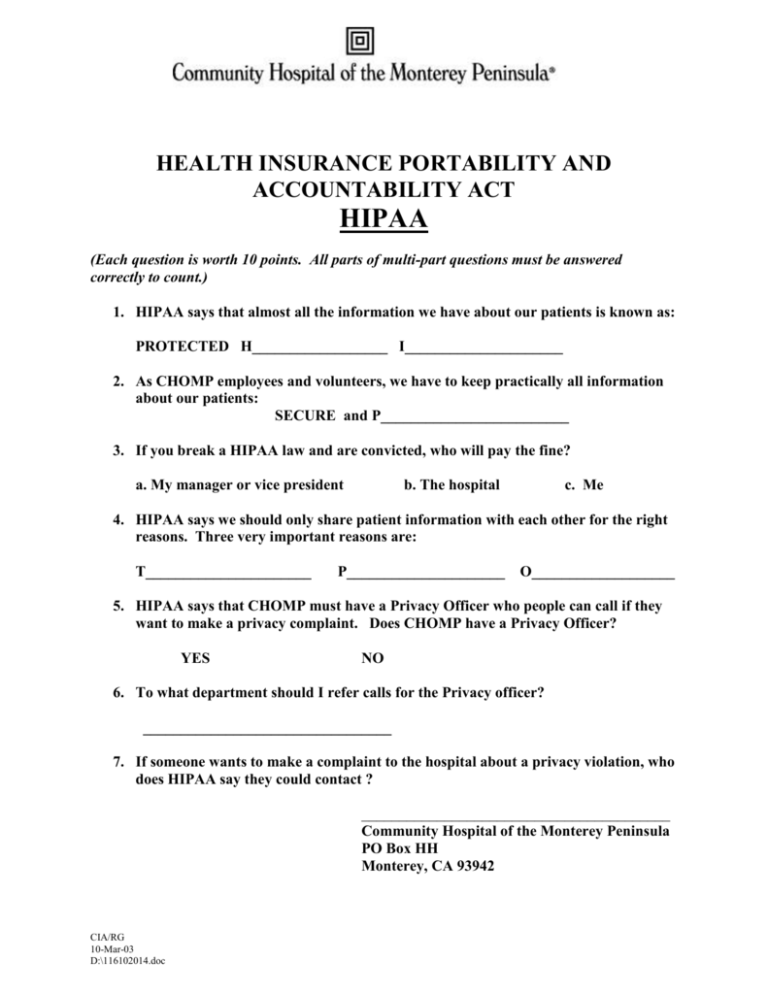
HEALTH INSURANCE PORTABILITY AND ACCOUNTABILITY ACT HIPAA (Each question is worth 10 points. All parts of multi-part questions must be answered correctly to count.) 1. HIPAA says that almost all the information we have about our patients is known as: PROTECTED H__________________ I_____________________ 2. As CHOMP employees and volunteers, we have to keep practically all information about our patients: SECURE and P_________________________ 3. If you break a HIPAA law and are convicted, who will pay the fine? a. My manager or vice president b. The hospital c. Me 4. HIPAA says we should only share patient information with each other for the right reasons. Three very important reasons are: T______________________ P_____________________ O___________________ 5. HIPAA says that CHOMP must have a Privacy Officer who people can call if they want to make a privacy complaint. Does CHOMP have a Privacy Officer? YES NO 6. To what department should I refer calls for the Privacy officer? _________________________________ 7. If someone wants to make a complaint to the hospital about a privacy violation, who does HIPAA say they could contact ? _________________________________________ Community Hospital of the Monterey Peninsula PO Box HH Monterey, CA 93942 CIA/RG 10-Mar-03 D:\116102014.doc 8. If a CHOMP employee or volunteer steals our patient’s information and sells it to someone, and then the employee or volunteer is caught and convicted, the employee or could go to prison for how many years? 10 years 5 years 1 year 9. Do our hospital auxiliary volunteers and Hospice volunteers need to know about HIPAA privacy laws? YES 10. NO Who at Community Hospital shares in the responsibility for safeguarding the security of electronic patient healthcare information? a. Employees and volunteers b. Vendors c. Medical staff d. All of the above. The answer is ____________ 11. True or false: Keeping electronic patient healthcare information secure is not only good practice; it’s also required by the federal regulation called HIPAA. TRUE FALSE The answer is: _________ 12. If I have a password for a hospital computer system, what should I do if I find out that someone knows my password? 1. Tell the person to never use it. 2. Don’t do anything; the person is trustworthy, so no harm is done. 3. Report it to Information Technology, and request a new password. 4. File a Risk Identification Report. The answer is:_____________ 13. I share in the responsibility for seeing that our patients’ healthcare information is safe and secure, even though in my job I don’t use anything containing patient information. TRUE FALSE The answer is:______________ 14. In public areas, it is not enough to discard reports with patient information on them by simply tossing them in a wastebasket; they must be disposed in a way that the patient information isn’t visible. TRUE FALSE The answer is:_______________ 15. Patients have a right to find out if we faxed their healthcare information to the wrong recipient, including who in the hospital did it. TRUE CIA/RG 10-Mar-03 D:\116102014.doc FALSE The answer is:______________ 16. Faxing is too dangerous, and we shouldn’t do it. TRUE FALSE The answer is:______________ 17. In areas accessible to the public, all electronic storage media containing confidential patient or hospital information should always be kept out of sight when it’s not being used, AND stored and locked away when no one is there. TRUE FALSE The answer is:______________ 18. Personal Digital Assistants with patient information on them are an important part of our security responsibilities under the HIPAA security requirements. TRUE FALSE The answer is:_______________ 19. CHOMP is required by law to audit its information systems to verify that they are being used ONLY for valid work-related reasons. TRUE FALSE The answer is:_______________ 20. CHOMP is required by law to take disciplinary actions against members of its workforce who intentionally violate its security and privacy policies and procedures. TRUE FALSE The answer is:_______________ 21. Community Hospital accepted a long time ago the responsibility for keeping its patients’ healthcare information secure and private. TRUE FALSE The answer is:______________ Print Name:______________________________ Employee Nbr.___________________ Signature:__________________________________ Date:___________________________ CIA/RG 10-Mar-03 D:\116102014.doc
